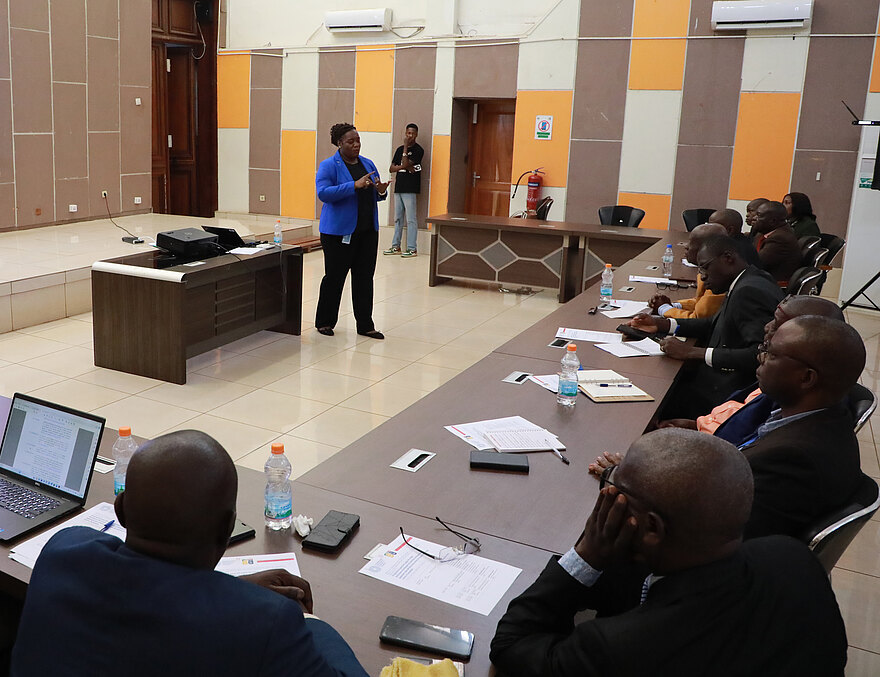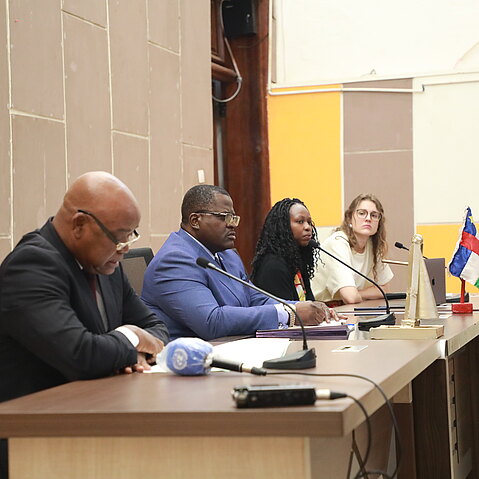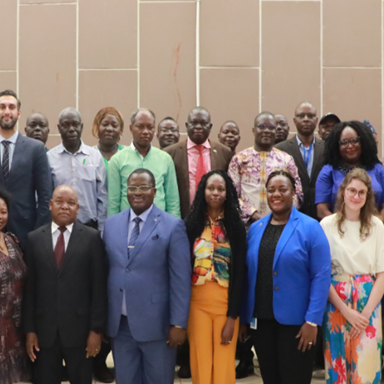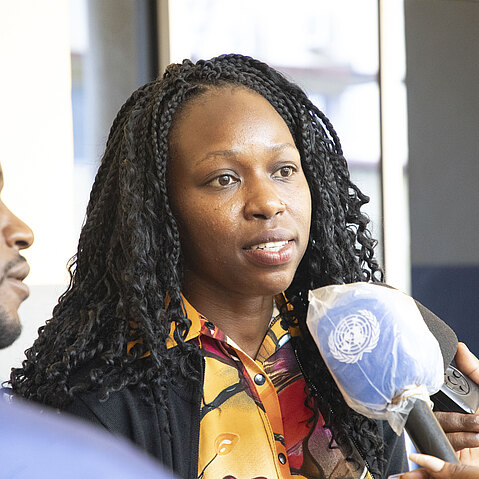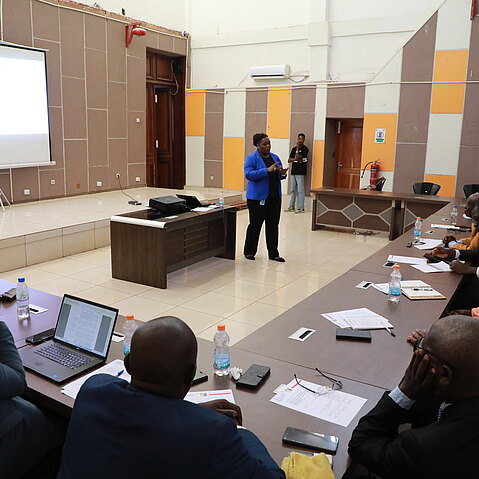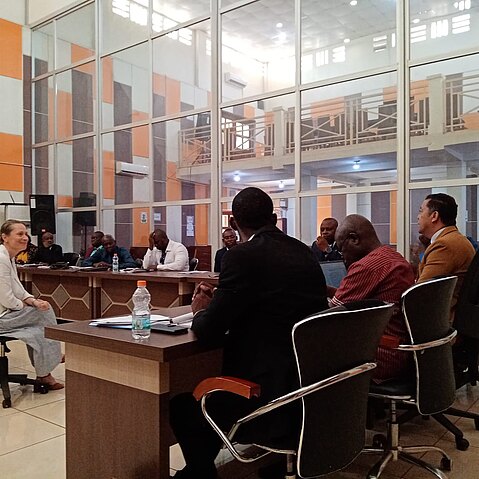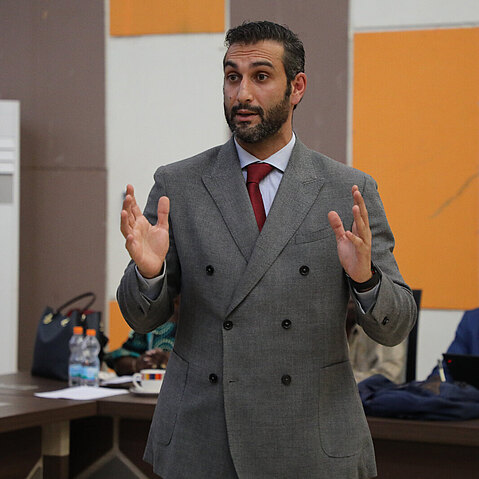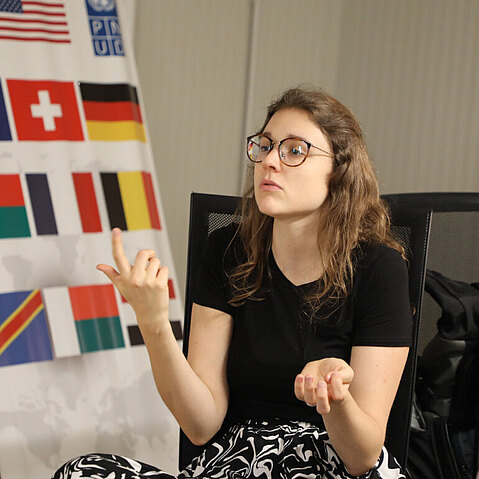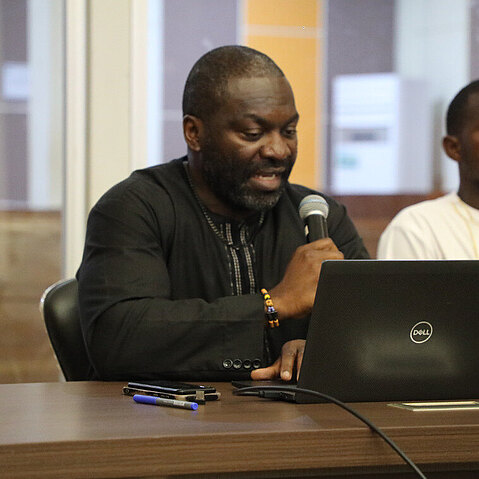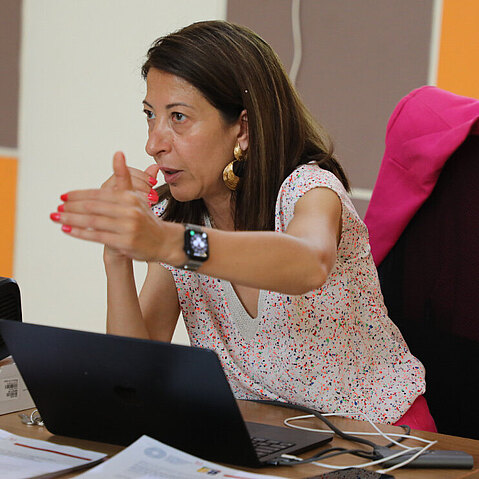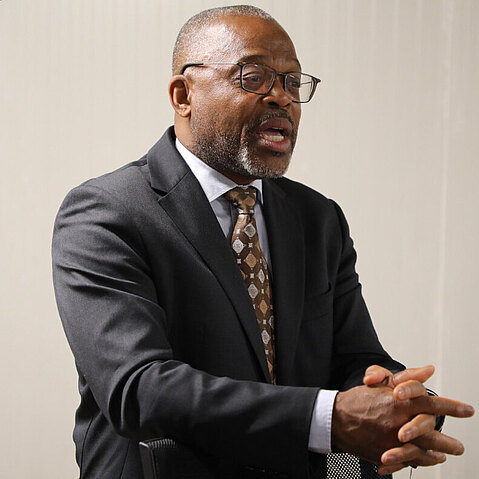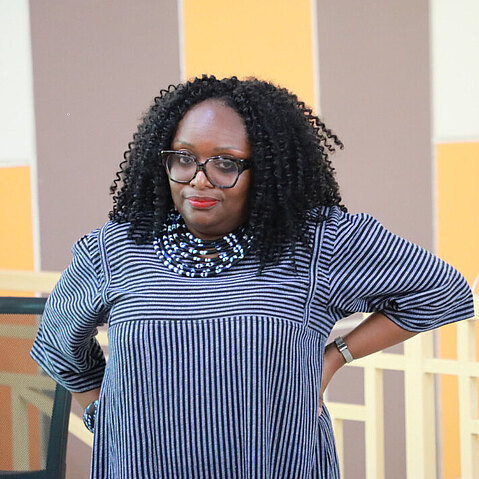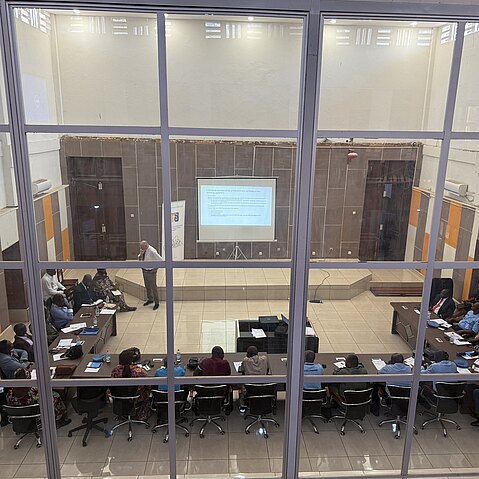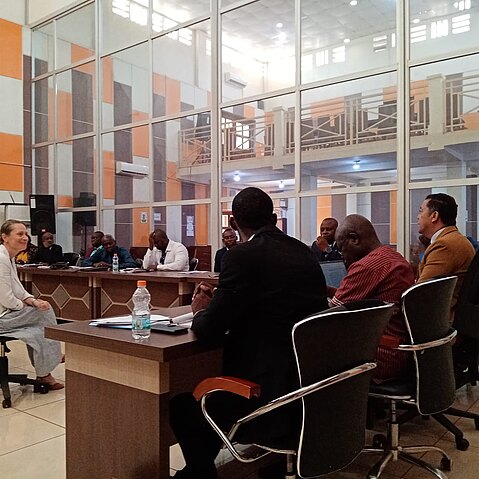From 19 to 23 May 2025, the Nuremberg Academy, represented by Senior Officer for Training and Capacity Strengthening Darleen Seda and Project Officer Dr Pauline Martini, held seminars at the Special Criminal Court (Cour pénale spéciale) (CPS) in Bangui, Central African Republic. The seminars, organised in partnership with the CPS, aimed to strengthen the knowledge and skills of actors involved in proceedings before the Court, as well as those of magistrates from domestic courts.
The seminars gathered more than 60 participants divided into five groups: trial judges, prosecutors, defence counsels, legal advisers, as well as investigative judges, judicial police officers and officers of la gendarmerie. The programme of each group was tailored to participants’ needs, encompassing both substantive sessions on specific aspects of international criminal law and exchange of good practices. Experts included Jean-Jacques Badibanga (Office of the Prosecutor of the International Criminal Court (ICC)), Bassem Chawky (CPS), Rosine Bela Eyebe (MINUSCA), Anta Guissé (Defence Counsel at the ICC), Dr Pauline Martini (Nuremberg Academy), Judge Marjorie Masselot (Kosovo Specialist Chambers), Roksana Naserzadeh (UNDP), Dr Ousman Njikam (CPS), Alexandre Tindano (CPS) and Stefan Waespi (Judge, CPS (2021-2024)).
In her opening speech, Senior Officer Darleen Seda emphasised the important role of hybrid and domestic courts in upholding the Nuremberg Principles while also recognising the difficult context in which the CPS operates. This point was echoed in the welcoming remarks of CPS President Michel Louanga and the representative of the State Ministry of Justice Ghislain Greemzengue, who also stressed the commitment of the CPS and the Central African government to end impunity for international crimes in the Central African Republic.
Further, side meetings held between representatives of the partner institutions highlighted the importance of enhancing both individual capacities and the institutional frameworks responsible for addressing atrocity crimes.
This collaboration reaffirms the Nuremberg Academy’s commitment to supporting national legal actors engaged in the enforcement of international criminal law in conflict and post-conflict settings. (pm/ds)

